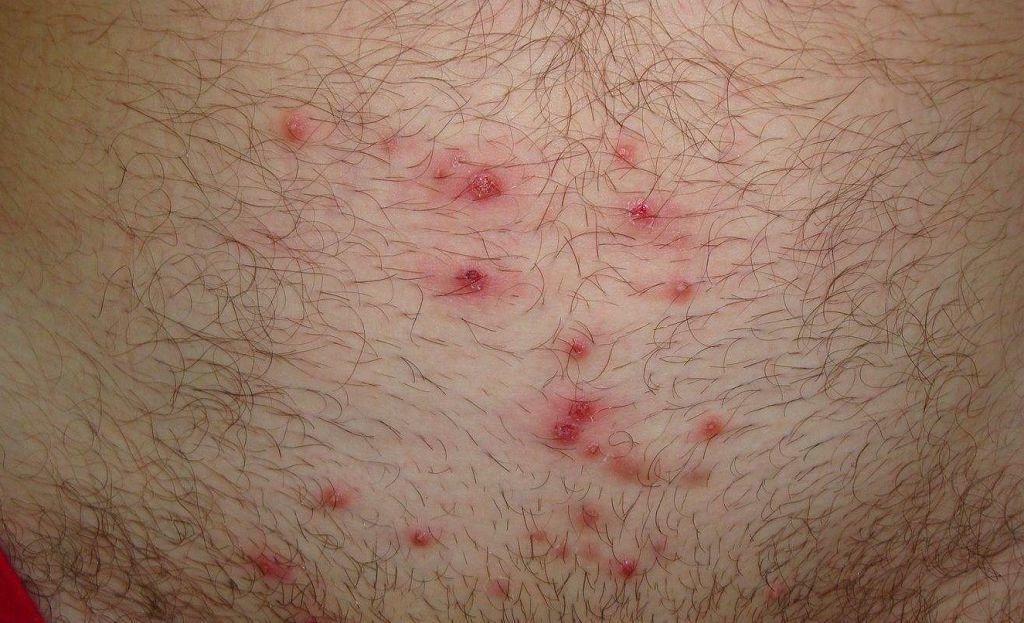Botulism - a disease that occurs as a result of poisoning by toxins and botulism bacteria is characterized by severe damage to the nervous system.
Causes
Pathogen - Clostridium botulinum - are widely distributed in nature with a permanent habitat in the soil. It produces spores are extremely resistant to physical and chemical factors. Spores kept refluxing 5 hours and at a temperature of 120 deg. Celsius die within 30 minutes. In a medium with a small amount of oxygen multiply and form a toxin. The toxin is partially destroyed by heating to 70-80 deg. Celsius under reflux for 5-15 minutes completely destroyed. Botulinum Toxin - one of the strongest known naturally occurring poisons, its lethal dose for a human is about 0.3 mg.
Reservoir botulism agents in warm-blooded nature are, at least cold-blooded animals, in the intestine which are Clostridium, feces excreted into the external medium. Sam pathogen does not cause human disease, only dangerous toxin. For the occurrence of poisoning must be multiplication of the pathogen to the accumulation of botulinum toxin in the environment mlenkim the amount of oxygen (ham, sausages, canned foods, salted fish), as well as canned vegetables, fruits, mushrooms.
In recent years, the occurrence of botulism has increased the role of canned mushrooms. The accumulation of toxins occur particularly intense at 22-37S. A person becomes ill, consuming foods that contain botulinum toxin. The patient is dangerous to others.
Botulinum toxin gets into the human body through the gastrointestinal tract with food. The two notable exceptions to this rule are very rare - botulism in infants, in whom toxin is produced in the intestine and wound botulism when multiplication occurs in the dead clostridial tissues.
Botulinum toxin is not destroyed by enzymes of the gastrointestinal tract and through the mucous membrane of the stomach and intestine is absorbed into the blood, selectively affecting different parts of the nervous system. Having paralysis of the respiratory muscles, muscles of the larynx, pharynx. This leads to disruption of breathing, swallowing, which contributes to the development of pneumonia. can develop sepsis (blood poisoning).
symptoms of botulism
The incubation period for botulism - from several hours to 2-5 days; the heavier the disease, the shorter the incubation period. In severe forms of disease it is usually about 24 hours. In most cases, the disease begins with the following symptoms:
- development of symptoms is very fast,
- nausea,
- vomiting, sometimes cramping abdominal bolei,
- Liquid stools without impurities
These symptoms last for about a day. Then, develop a sense of fullness in the stomach, flatulence, constipation.
Damage to the nervous system appear or simultaneously with gastrointestinal, or after their extinction by the end of the first - the beginning of the second day.
The early signs of botulism include visual disturbances. Patients complain of "fog", "net" before the eyes, double vision of objects, reading difficulty.
Simultaneously there thirst, dry mucous membranes due to violation salivation and swallowing disorder varies timbre. In this case, patients concerned about the feeling of "lump" in the throat, pain when swallowing, choking, due to the defeat of the larynx and throat muscles.
The defeat of the nervous system accompanied by a general toxic syndrome - headache, dizziness, insomnia, Weakness, fatigue. However, fever is usually absent, and only some patients have low-grade fever.
Terrible indication that an unfavorable course of the disease, a breathing disorder. Patients feel a lack of air, heaviness in the chest, sometimes chest pain, breathing becomes shallow. The cause of death in botulism is respiratory insufficiency.
Diagnostics
Diagnosis is based on laboratory data. An important role in the diagnosis of botulism plays fact a group of disease in people who ate one and the same product (canned, dried fish, smoked meats, homemade juices, canned vegetables, mushrooms, meat).
Laboratory diagnosis: for the study of blood is taken, vomit and gastric lavage, feces and the remains of food. The presence of botulinum toxin in the material is determined using the biological method.
botulism treatment
All patients with suspected botulism are subject to mandatory hospitalization in connection with the need for timely specific therapy to prevent possible serious complications.
The main objectives of the emergency are neutralizing, binding and removing toxins from the body, ensuring the functions of the respiratory and cardiovascular systems.
Prehospital following urgent measures need to hold: stomach wash water is first boiled, then 2-percent solution of soda; plenty of frequent drinking; intramuscularly or subcutaneously with 2 ml of 0.05 percent neostigmine and conduct artificial respiration with acute respiratory failure.
protivobotulinicheskie therapeutic serum is used to neutralize the botulinum toxin.
If the type is unknown toxin causative administered serum of three types - A, B and E. Serotherapy precede intradermal test and desensitization. In severe disease serum first dose is administered intravenously, in the other cases - intramuscularly. Initially administered 10-15 thousand. IU serum type A and E and 5-7.5 thousand. IU serum type B. Subsequent doses and frequency of administration are determined by the severity of disease and the dynamics of clinical symptoms.
In severe forms administering botulinum serum repeated after 6-8 hours until the effect. A full course of treatment consumes up to 50 000-60 000 IU serum type A, E, and 25 000-30 000 IU of type B, the dose may be increased, but serotherapy rate should not exceed three to four days. Given that in the gastro-intestinal tract can be converted spores into vegetative forms prescribe antibiotics (chloramphenicol) or tetracycline drugs. Simultaneously carried disintoxication therapy.
When respiratory distress due to respiratory muscle paralysis is a mechanical ventilation. To combat hypoxia using hyperbaric oxygenation.
Forecast
In the convalescent patients with long residual effects persist after paralysis (over 1-2 months), asthenic syndrome. Botulism can be complicated by pneumonia, sepsis, myocarditis.
Recovering after hospital discharge are observed in the absence of complications - 14 days; Complications in:
- In transferring myocarditis - disability period of not less than 10 days. Treatment by a cardiologist, followed by clinical observation once every 6 months during the year with the study of blood and ECG;
- with residual effects of neurological symptoms - disability period of at least 2 weeks followed medical observation at the neurologist and an infectious disease within a year of the survey every 3 months (ECG, clinical blood analysis).



